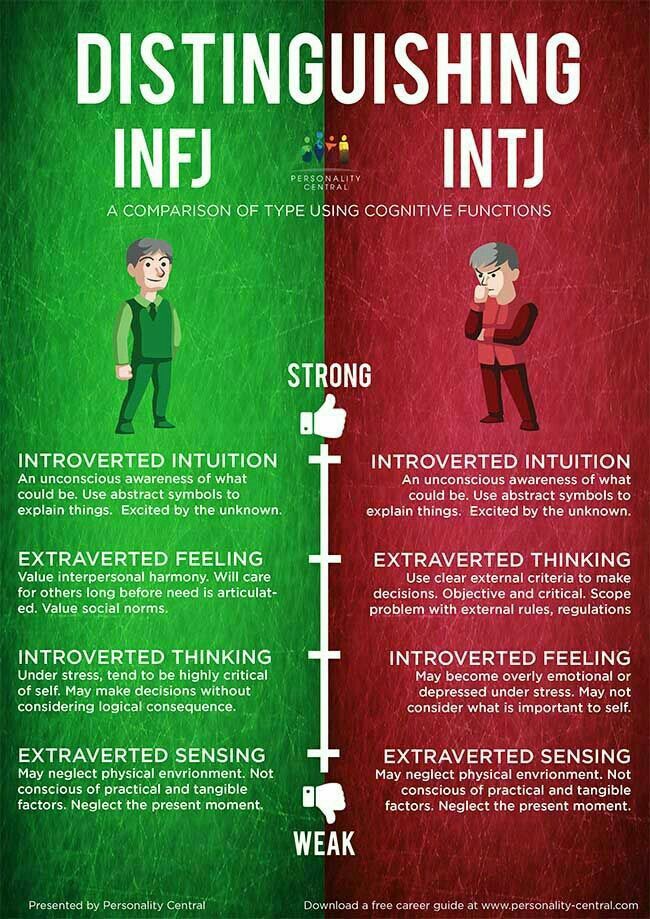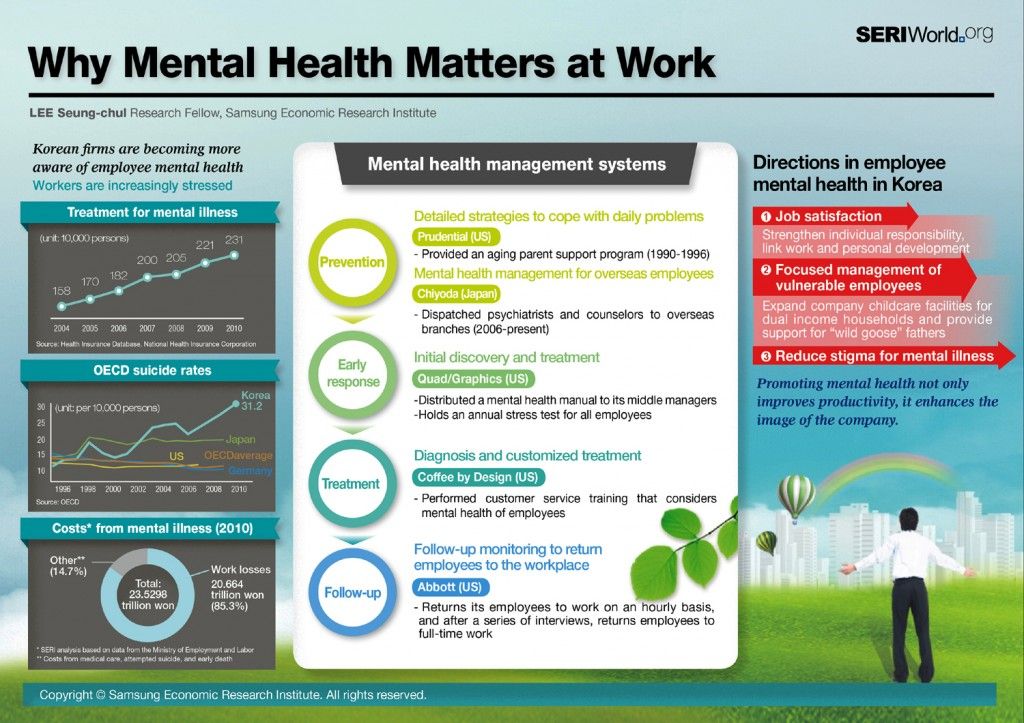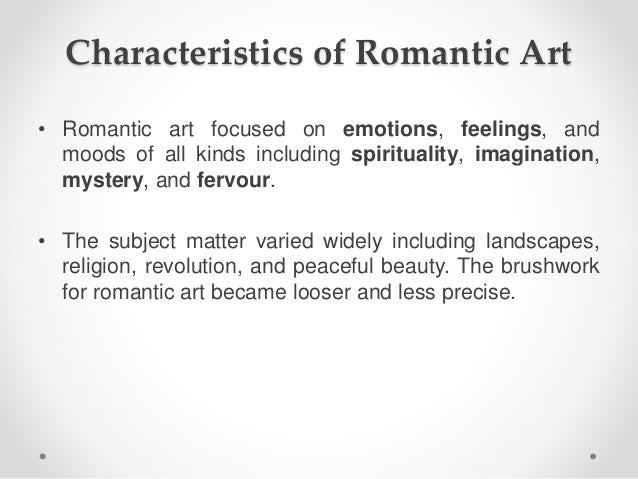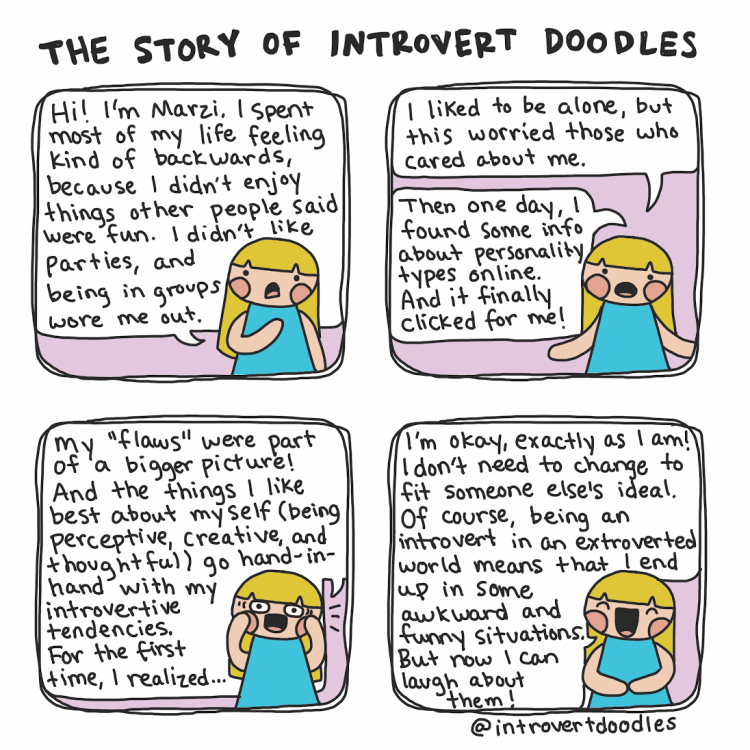Personality types controller thinker feeler and entertainer
Using Personality Profiles to Personalise Customer Interactions
It’s a simple concept. Not all customers are the same. So, if you want to improve customer service you need to start treating different customers differently.
Jill Dean highlights how personality profiles are used by companies, such as the award-winning British Gas, as a way of delivering different styles of customer service.
The power of personality
Customers certainly won’t change to make your life easier, but you can change the way you interact with them.
That’s the basis of the approach you can use to transform the customer experience.
We begin by identifying what we refer to as the four personality ‘drivers’. While, on a day-to-day basis, individuals will react to situations in different ways driven by some or all of them, it is likely that there will be one ‘driver’ that is more dominant. This primary ‘driver’ will colour the way that people behave in the majority of situations and is likely to be the major determinant of how people are perceived by others.
Four different personality profiles
The best way to understand each one is to consider how they’re perceived at their best (on a good day when all’s running to plan) and worst.
- Feeler: Considerate, loyal and sincere, which could be seen as indecisive and over-involved at times.
- Entertainer: Charismatic, optimistic and humorous, which could sometimes come across as self-centred and sarcastic.
- Controller: Business-like, direct, decisive, but could be seen as dictatorial and intimidating.
- Thinker: Logical, detailed and calm, seen by some as unimaginative and stubborn.
Recognise and relate
When we introduce our clients to this insight for the first time, we aim to achieve two things: self-realisation and mutual understanding of others. Without the former, the latter’s not possible. It’s only when a mirror’s held up to your own behaviour that you can begin to understand how others see you, and appreciate just how differently you perceive things.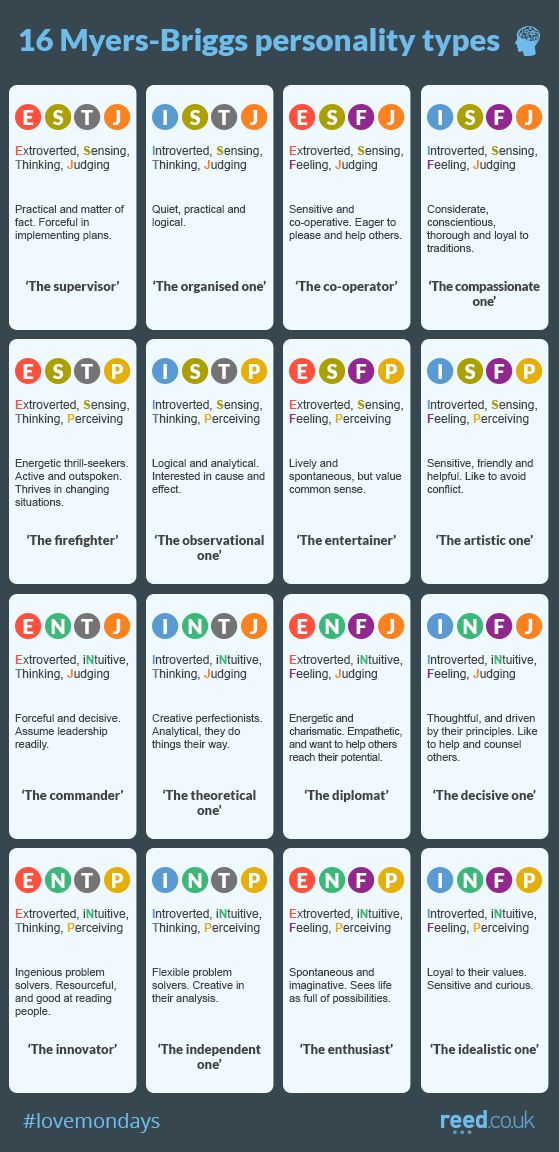
British Gas display the advisor’s personality profile on their desks
Which personality profile are you?
How can you find out which personality profile you are? Our approach is a quick test to illustrate how each would respond to a given situation.
Consider the following scenario: An irate customer calls to find out when their delivery’s coming as it didn’t arrive this morning as scheduled.
What’s your natural instinct?
a) Respond to their anger by apologising, hoping they’ll calm down.
b) Try to get to the bottom of the problem. You want to understand why this has happened before you consider what to do next.
c) Let them get their rant over, then do what you can to lighten the mood.
d) Tell them to calm down. It’s not your fault.
If (a) then chances are you’re a Feeler, if (b) you’re likely to be a Thinker. If (c) is your answer, you’re probably an Entertainer, and if (d) you’re more than likely to be a Controller.
Dealing with different drivers
By understanding the qualities of the other ‘drivers’, it’s possible to identify wants, needs, similarities, differences and where there might be potential conflict.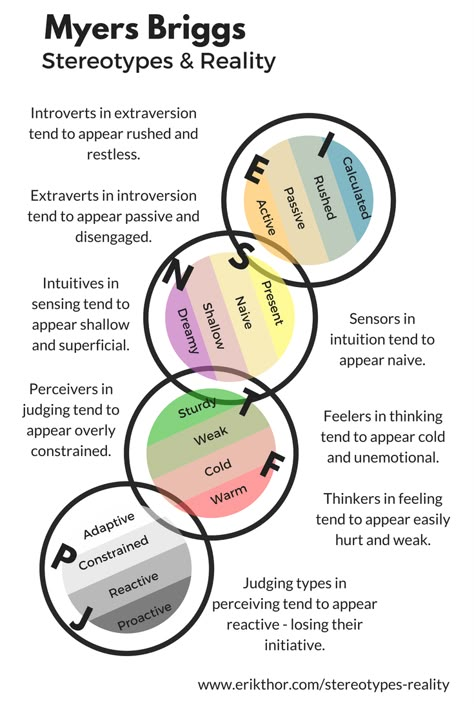 This helps us to drill down into what each customer wants from customer service.
This helps us to drill down into what each customer wants from customer service.
All customers want advisors to take ownership of the query, listen to them and do what they promise, but it’s the way that advisors tackle these that’s most important to each individual’s experience.
But how do you spot which ‘driver’ each caller is likely to be?
Here are a few pointers on what they might say, and how to tailor your approach to the different ‘drivers’:
Feelers: Be Friendly and Fair
A Feeler might begin a complaint by saying how upset they are or by saying how a fault on the company’s part has affected them, their family or friends. The best way to serve them, particularly if you’re a Controller whose first instinct is to resolve the call quickly, is to show some understanding and offer moral as well as material support. Often all they want is to be treated fairly. A Thinker, by contrast, could find common ground with a Feeler by giving them space to explain their personal experience.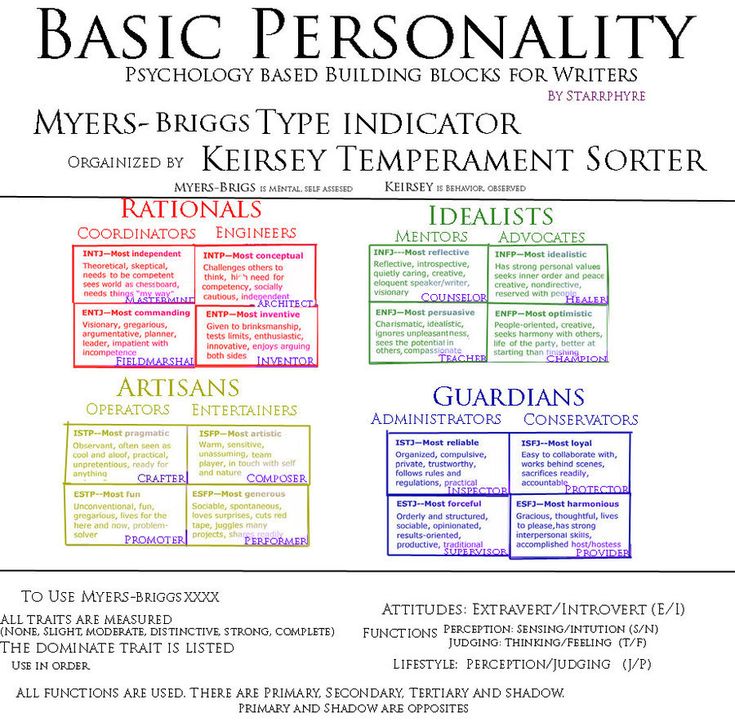
- They say: “My daughter’s so disappointed. Everything was supposed to be ready and wrapped for her birthday.”
- You say: “I’m really sorry that this has made life difficult. I’ll personally look into that for you.”
- Don’t say: “So your point is…?”
“My daughter’s so disappointed. Everything was supposed to be ready and wrapped for her birthday.”
“I’m really sorry that this has made life difficult. I’ll personally look into that for you.”
Entertainers: Engage and Enthuse
An Entertainer is likely to start their call with a light-hearted chat about… well, whatever’s on their mind at that precise moment – most likely, themselves! A Thinker taking their call would probably be more inclined to get an in-depth understanding of their issue rather than make small talk. However, humour them – responding to the caller’s need for ‘banter’ and reassurance they’re dealing with a real person will increase rapport. A Controller dealing with this type of customer should avoid pushing the caller to ‘get to the point’…
- They say: “New Year was amazing! Glad I’ve got the next few days off to recover.
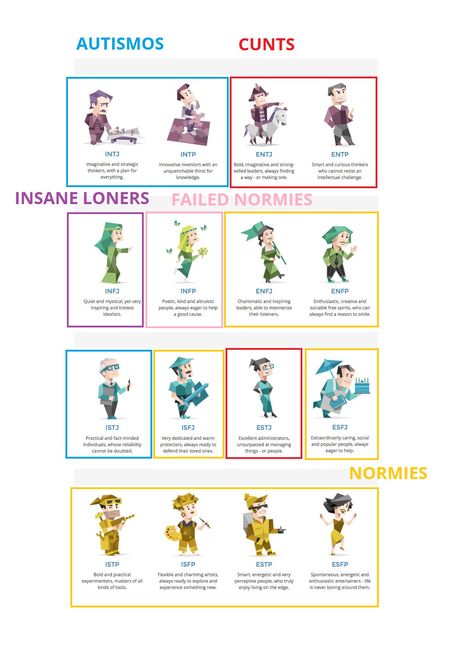 ”
” - You say: “Sounds like a blast! Seeing as you’ll be at home for the next couple of days, I’ll see if we can squeeze in that delivery for you…”
- Don’t say: “I’m struggling to understand the precise nature of your enquiry.”
“New Year was amazing! Glad I’ve got the next few days off to recover.”
“Sounds like a blast! Seeing as you’ll be at home for the next couple of days, I’ll see if we can squeeze in that delivery for you…”
Controllers: Cut to the Chase
Controllers are likely to be (very) direct, and get to the point as quickly as possible. They give, and like to receive, short, sharp soundbites of information. They value proactivity, solutions and options. When dealing with them, make sure you get right to the point and, even if you don’t know an answer, tell them you’ll find out. Thinkers, please spare them the detail. Feelers, don’t take their brusque manner as aggression directed at you.
- They say: “I need the package on Monday.
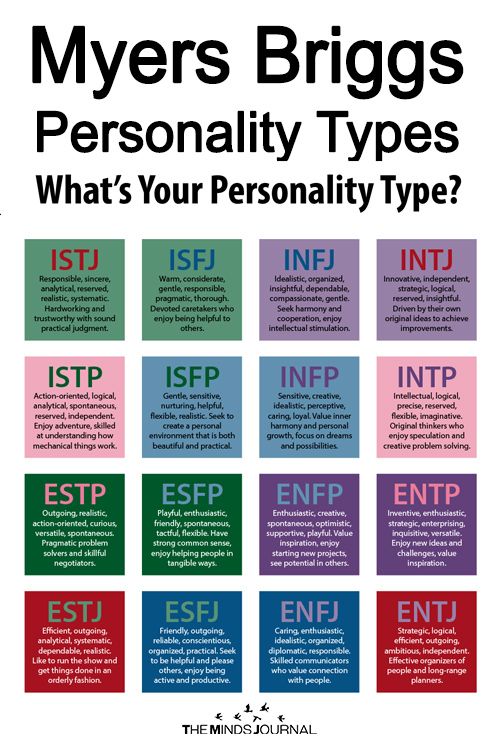 ”
” - You say: “The quickest solution is to book the delivery in ASAP. That way there’s a better chance you’ll get the package on Monday morning, weather permitting. Would you like me to sort that out for you now?”
- Don’t say: “It’s possible, but it all depends when the courier gets to you. I’ve heard snow’s on its way, so don’t hold your breath. I don’t know the exact time. Probably Monday in the early afternoon, but don’t quote me on that.”
“I need the package on Monday.”
“The quickest solution is to book the delivery in ASAP. That way there’s a better chance you’ll get the package on Monday morning, weather permitting. Would you like me to sort that out for you now?”
Thinkers: Tell Them the Detail
A Thinker is almost certain to offer an in-depth account of their issue. When dealing with them, make sure you take on board everything they’re saying and have all the information you need to deal with their questions. And yes, there will be questions, so don’t rush them! Give them space to absorb, analyse and ensure you explain the nitty-gritty.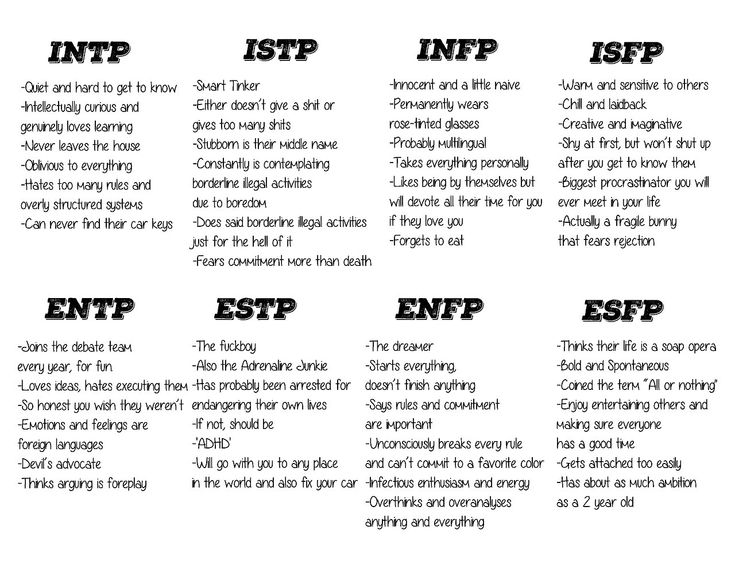 Controllers, try not to get frustrated. Entertainers, don’t make light of their queries.
Controllers, try not to get frustrated. Entertainers, don’t make light of their queries.
- They say: “Just so I understand, can you run through what happens now?”
- You say: “To summarise: you’re scheduled to receive your order within three working days of placing it. You’ll get email confirmation when it’s been dispatched. In the event that there’s any delay in shipping we’ll advise you of an alternative dispatch date as soon as we can.”
- Don’t say: “Don’t worry. You’ll get your order.”
“I need the package on Monday.”
“The quickest solution is to book the delivery in ASAP. That way there’s a better chance you’ll get the package on Monday morning, weather permitting. Would you like me to sort that out for you now?”
Get some perspective
Jill Dean
One size never fits all, especially where customers are concerned. However, by adopting an approach (such as the one outlined above) that’s designed to be more inclusive of their different needs, advisors can and will deliver a much more positive experience.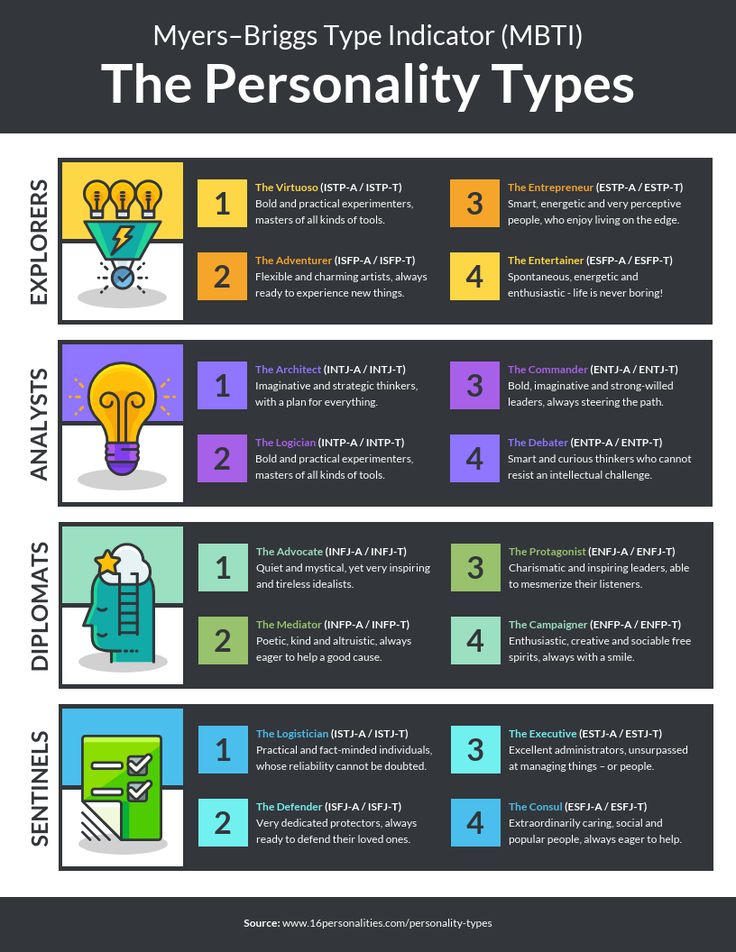 Even when customers don’t get exactly what they want from a call, if they feel they’ve been listened to, that the advisor’s understood where they’re coming from, and done everything possible, they’ll look upon your business in a favourable light.
Even when customers don’t get exactly what they want from a call, if they feel they’ve been listened to, that the advisor’s understood where they’re coming from, and done everything possible, they’ll look upon your business in a favourable light.
Companies operating across a number of diverse sectors – utilities, finance, automotive, travel and transport – have successfully used this approach to behavioural change to achieve immediate, yet lasting, results and measurable return on investment. Our clients have seen increases in employee engagement, net promoter scores and first time call resolutions, as well as significant reductions in average call times.
Jill Dean is Chief Executive Officer of Brand Biology
For more on the topic of personalising customer interactions, read our articles:
- How to Personalise Customer Interactions
- 6 Ideas for a Great Personalized Customer Experience
- 26 Tips to Personalise Customer Experience
The 4 Customer Types You Meet In Support
Wed, 10 May 2017, in Customers
Enjoying this post? You might also like 10 Customer Service Skills Every Employee Should Have
One of the reasons why customer service is difficult to get right is due to the unpredictable nature of customers themselves.
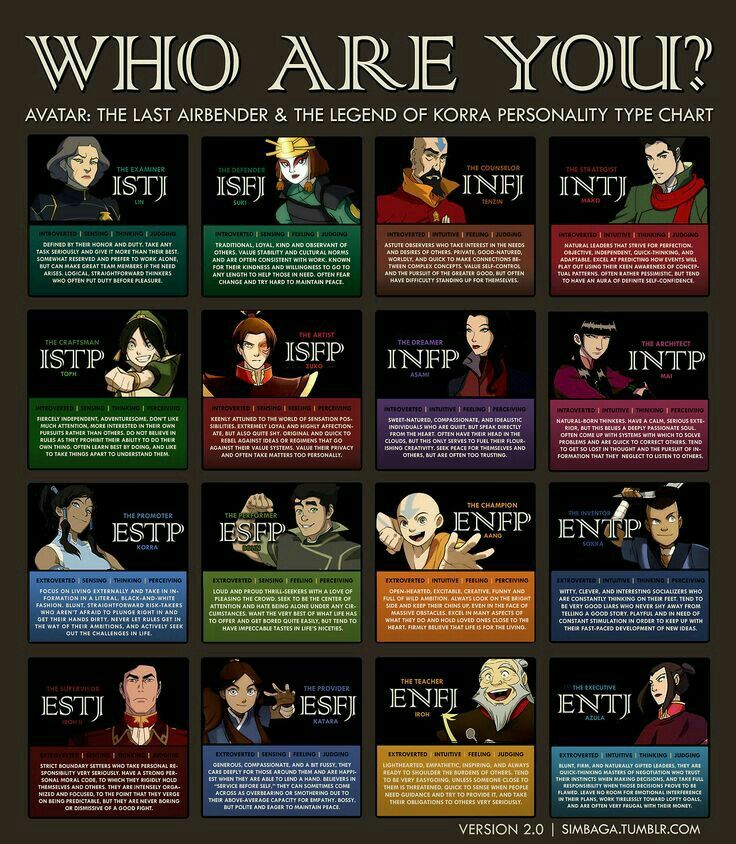
I recently came across an article by Jeff Toister who described a situation he had with a faulty bottle of wine. It had a strong vinegar taste despite being purchased at a top winery. He was assisted by two employees, the first of which saw the problem of a defective wine bottle that needed replacing. The second employee saw a customer who was disappointed with their product.
Not surprisingly, only the second employee was able to emphasize and help the customer properly.
While support staff are going through the motions of keeping customers satisfied, customers are also going through the motions of purchasing and experiencing the product. It’s only natural that when customers are confronted with a problem, they’ll have their own way of visualizing the solution.
A bit of assertiveness and decisiveness may help you in seeing things from the customer’s point of view, and in order to make decisions faster you’ll need to spend less time figuring out who you’re talking to.
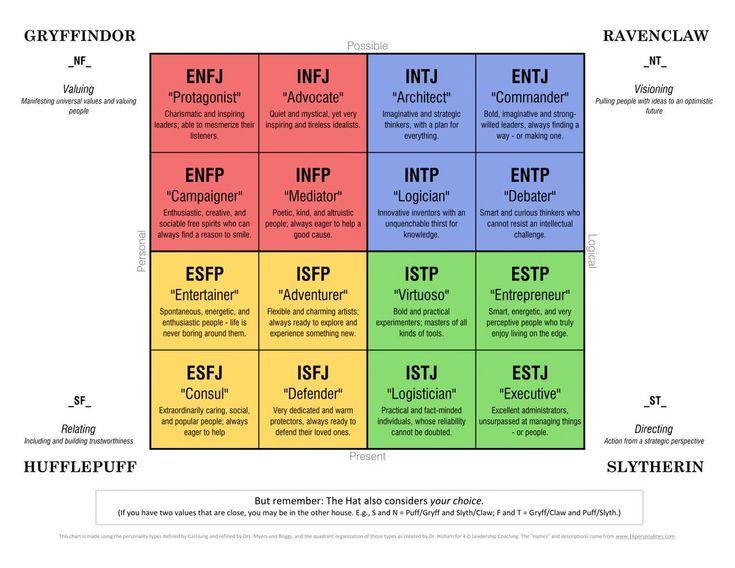
Sometimes, in order to both work more effectively and offer higher quality of support, you need to be able to split customers into profiles. This will help distinguish how the majority of certain people will behave in the a given situation. And good news for your support team – it’s also a main determinant of what behavior they’ll be receptive to, too.
Read More: 30 Do’s and Don’ts for Better Customer Service
Controllers
Controllers are assertive personality types that tend to be goal-oriented and competitive. They are all about survival of the fittest and devote significant amounts of energy on getting ahead of everyone else. Customer service employees sometimes make the mistake of seeing them as dictatorial and demanding.
How to spot them:
These people tend to be independent, decisive and sometimes even stubborn. In short, they are leaders who have budget goals and deadlines. They expect and value professionalism, self-improvement and generosity.

How to talk to them:
These people are usually experts in their fields and know what they want. Try to appeal to their inner ego. In order to sell yourself, reference your competitive advantage and use numbers that illustrate your point.
Customer service tip:
- don’t: be inefficient. Don’t waste their time or cover unimportant “fluff” or unrelated “features”
- do: compliment their leadership or decisiveness. Follow up when you don’t know or need to re-negotiate something.
Feelers
Feelers value personal relationships and want to trust those that they do business with. They like to be reassured and care about the well-being of others. They tend to use intuition when taking on challenges.
Unlike controllers however, they rely more on their intuition instead of structure and predictability – they seek out reassurance, fairness and a sense of purpose.
How to spot them:
A “feeler” can display a number of emotions – starting from how disappointed they are with the company or how important a certain outcome (such as a timely delivery) is to them.
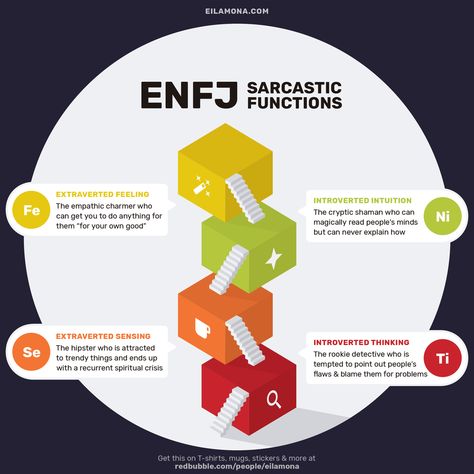 Try to understand where they’re coming from.
Try to understand where they’re coming from.How to talk to them:
While your first instinct could be to support them, you should offer your undivided attention and listen to their issues. Understand the situation past the scope of their dissatisfaction.
Customer service tip:
- don’t: bore them with long walk-throughs or explain the solutions in detail.
- do: talk about their end gloals they’re after, connect with their emotional side & don’t be afraid to step outside your responsibilities to help.
Thinkers
Thinkers are all about pragmatism, sophistication and logical deductions. They appreciate having all the tools at hand when making a decision – they like facts, figures and are able to digest detailed information easily.
How to spot them:
These are the ones that thrive on information and must do a lot of deliberation before making a decision. They may come across as aloof and indecisive because they’re asking you lots of questions – yet they may just be trying to make an informed decision.

How to talk to them:
Try to be serious and always assume that they’re listening. Get into the details of the situation but at the same time give them enough time to absorb and analyze what you’re giving them.
Customer service tip:
- don’t: rush them or sell them on buzz words or sales-y pitches.
- do: tell them the details, summarize the steps. If you do make a claim, back it up with facts and figures. Present the information in an understandable, legible way.
Entertainers
It may be difficult to understand how to approach an entertainer at first. They are quick to think on their feet, but change their mind often and need an optimistic, human ear (or helping hand).
How to spot them:
Chances are, these individuals will be enthusiastic and expressive. They’re similar to Feelers and may come across as natural people pleasers. They want a challenge and demand engagement in their interactions.
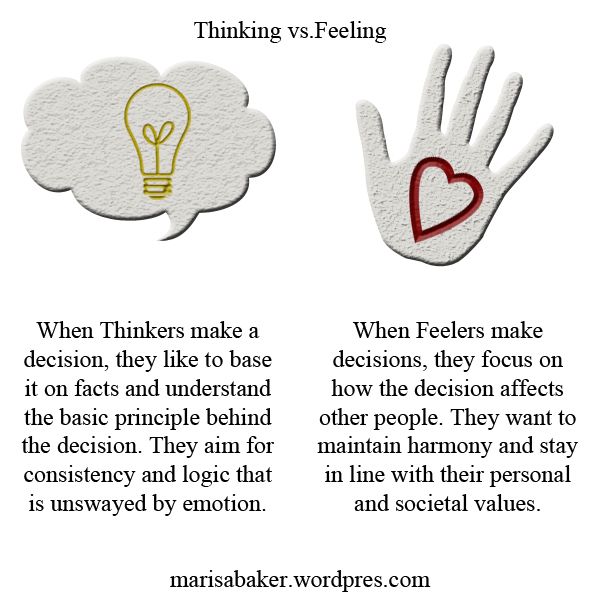
How to talk to them:
Find out what their beliefs are and stick to them. Use the philosophy of scarcity to nudge them in the right direction. Reassure them with social proof: share how others are using your products and who is satisfied with it.
Customer service tip:
- don’t: ignore their desire to speak to humans. Avoid monotonous, detailed answers.
- do: build genuine relationships with entertainers. Catch their attention with videos, infographics or testimonials of other users.
We receive and react to information differently depending on many biological, psychological and environmental factors. We also tend to have a vivid memory of our interactions between one another (regardless if it’s via shared email, vocal or in face-to-face) – especially if something didn’t go the way we wanted or expected.
Customers take it a step further: they are comparing brands and experiences all the time, even if they don’t realize it.
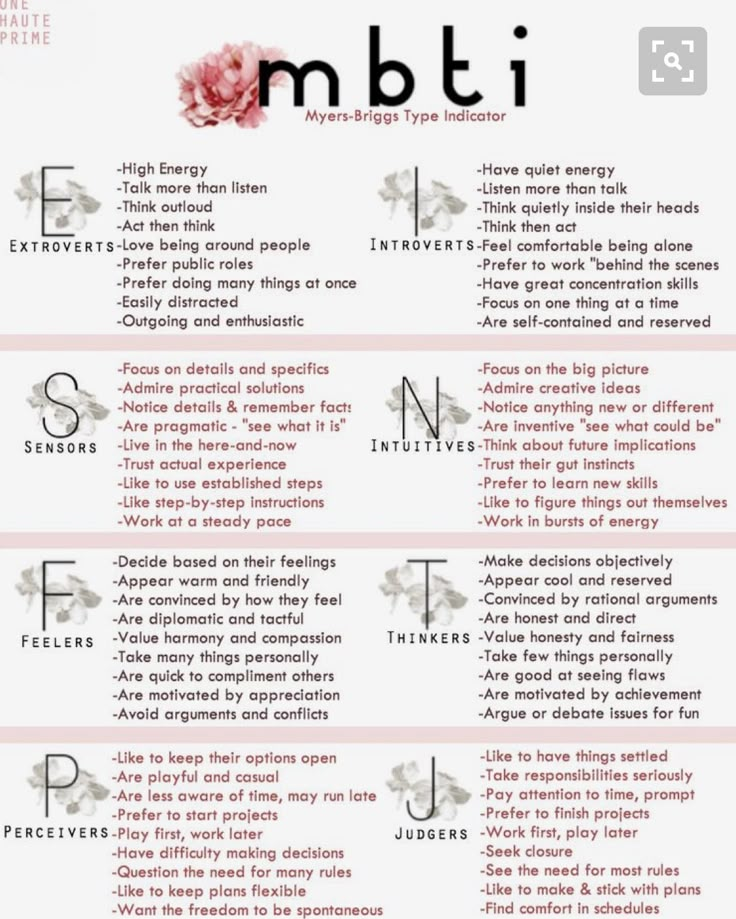 As a result, many customers can be dissatisfied for arbitrary reasons, even after they report being happy and support experiences being great.
As a result, many customers can be dissatisfied for arbitrary reasons, even after they report being happy and support experiences being great.Why perspectives matter
As with the wine bottle situation mentioned at the beginning of the article, it pays to step back and think of a case management issue or a problem from the customer’s perspective – and do it with lighting speed.
When customers ask you a question about feature x, you have no way of knowing that they just want to improve workflow y. It often helps to dig down beneath the surface and offer a solution through proposals, facts, outcomes or relationships.
Regardless of what your customer may want to do, knowing to pick up on the cues and frame the answer the right way is ultimately what separates an “ok” business from the one everyone can’t stop raving about.
Read More: Why Fire Bad Customers and How to Do it Right
Tags: customers
Personality types | 16Personalities
Analysts
Strategist
INTJ-A / INTJ-T
Imaginative, strategic thinkers with a plan for all occasions.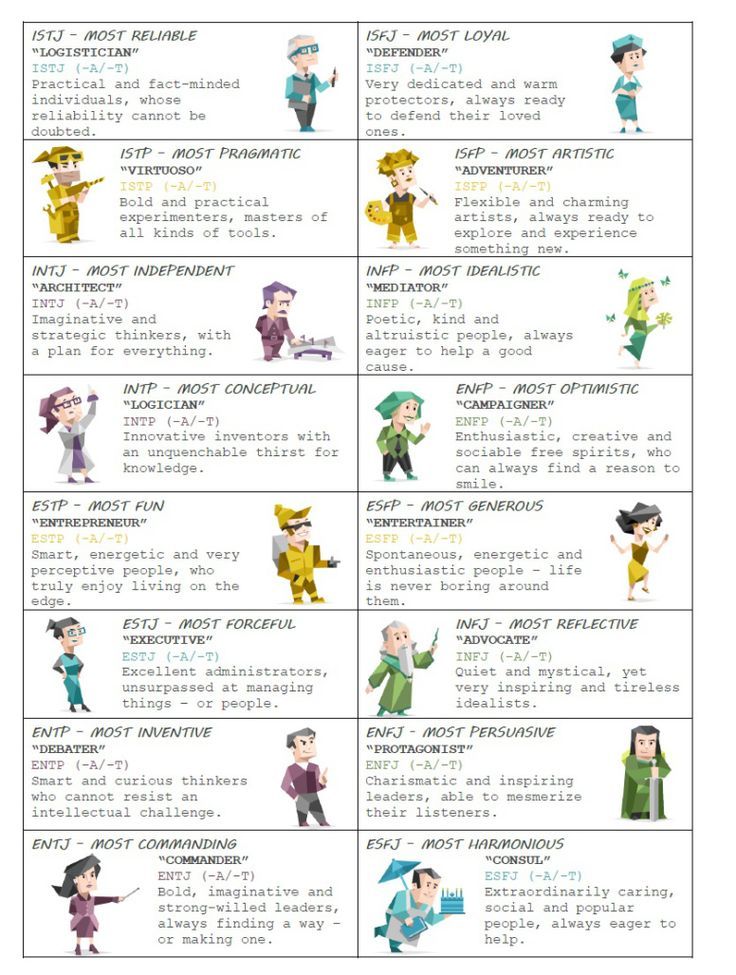
Scientist
INTP-A / INTP-T
Creative inventors, with a strong belief in the power of knowledge. nine0009
Commander
ENTJ-A / ENTJ-T
Brave, resourceful and strong-willed leaders who always find a way - or make a way.
Debater
ENTP-A / ENTP-T
Smart and curious thinkers who never turn down an intellectual challenge. nine0009
Diplomats
Activist
INFJ-A / INFJ-T
Quiet and mystical, but inspiring and relentless idealists.
Broker
INFP-A / INFP-T
Poetic, kind and altruistic personalities, always ready to stand up for a good cause. nine0009
Trainer
ENFJ-A / ENFJ-T
Charismatic and inspiring leaders who captivate their listeners.
Wrestler
ENFP-A / ENFP-T
Enthusiasts, creative and sociable free minds who always find a reason to smile. nine0009
Guardians
Administrator
ISTJ-A / ISTJ-T
Practical and factual people whose reliability is unshakable.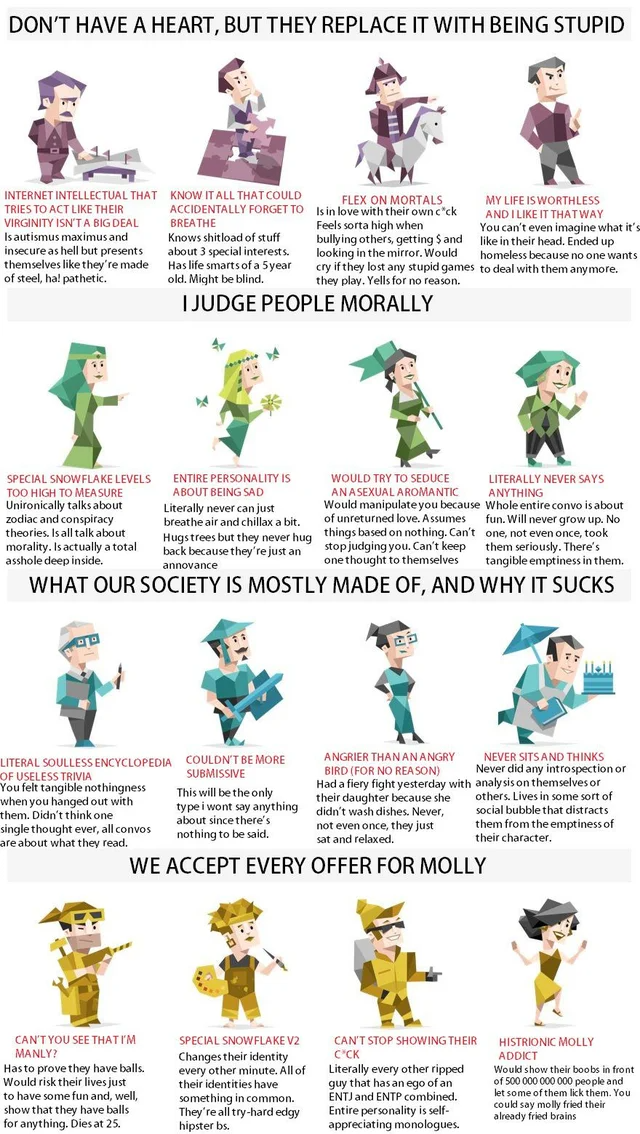
Protector
ISFJ-A / ISFJ-T
Very responsible and kind protectors, always ready to protect their loved ones. nine0009
Manager
ESTJ-A / ESTJ-T
Excellent administrators, unsurpassed specialists in process and people management.
Consul
ESFJ-A / ESFJ-T
Extremely caring, sociable and popular people, always ready to help. nine0009
Seekers
Virtuoso
ISTP-A / ISTP-T
Brave and practical experimenters, masters of all kinds of techniques and tools.
Artist
ISFP-A / ISFP-T
Flexible and charming artists, always ready to explore and experience something new. nine0009
Dealer
ESTP-A / ESTP-T
Intelligent, energetic and very receptive people who truly enjoy risk.
Entertainer
ESFP-A / ESFP-T
Spontaneous, energetic and tireless merry fellows - where they are, it's never boring. nine0009
What are the types of personality and how to interact with them
To quickly understand what kind of person is in front of you is a matter of life experience. But learning from our mistakes, as we know, is not always useful, which is why we often resort to psychology.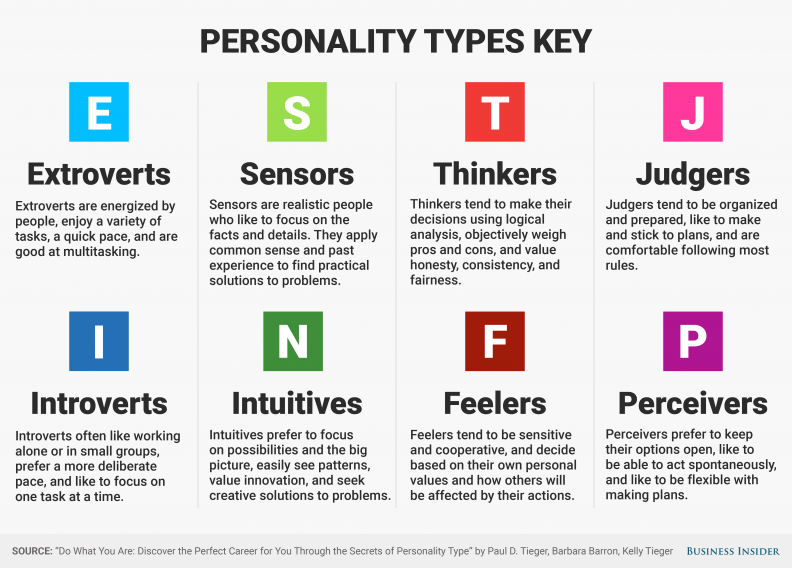 You can understand the characteristics of your interlocutor right now and build relationships with him correctly, guided by simple knowledge about 10 basic personality types. Get ready - below is a very practical and useful guide from Tatyana Vladimirovna Mizinova, Ph.D., President of the European Association for the Development of Psychoanalysis and Psychotherapy (EARPP), Vice President of ECPP (Vienna, Austria) and Director of the Persona psychological center. nine0110
You can understand the characteristics of your interlocutor right now and build relationships with him correctly, guided by simple knowledge about 10 basic personality types. Get ready - below is a very practical and useful guide from Tatyana Vladimirovna Mizinova, Ph.D., President of the European Association for the Development of Psychoanalysis and Psychotherapy (EARPP), Vice President of ECPP (Vienna, Austria) and Director of the Persona psychological center. nine0110
For centuries people have sought to create classifications that could predict or explain the behavior of others.
Astrology offered signs of the zodiac, the Chinese horoscope determined the features of a person depending on the year of birth. As science developed, more precise and specific personality typologies appeared. One of the first belongs to Hippocrates, who singled out four types of temperament and, on the basis of the views that existed in science at that time, associated them with the influence of the internal fluids of the body:
Phlegmatic is a calm and unflappable person who rarely shows his true emotions and feelings.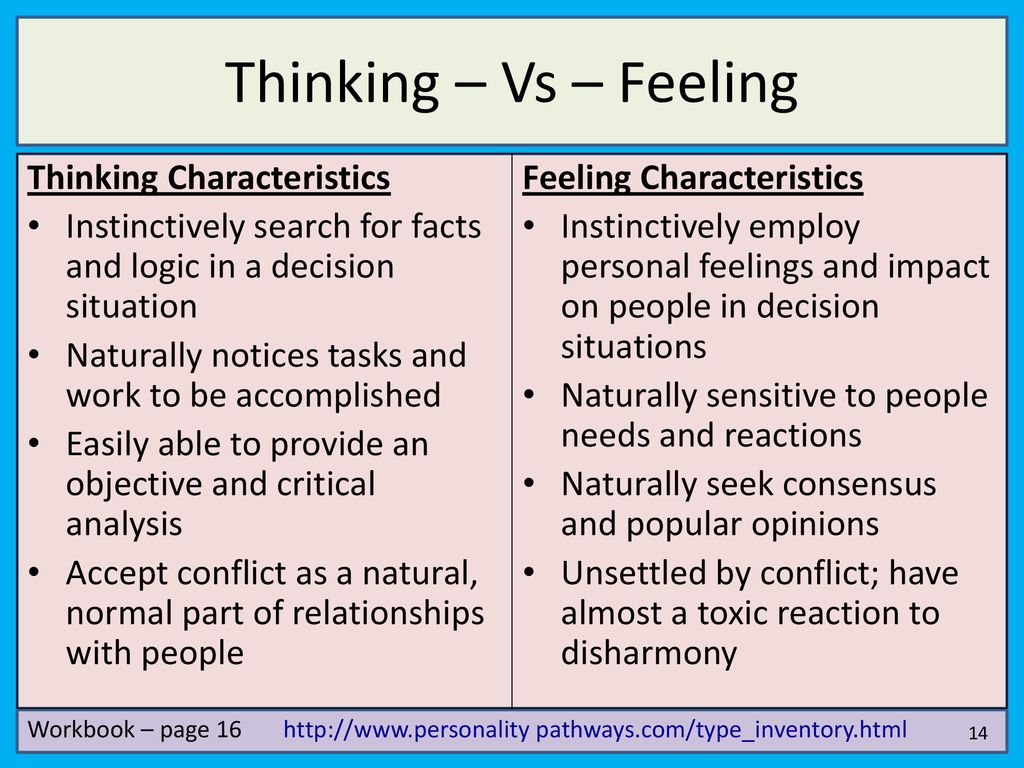 In study and work, he will be thorough and unhurried, paying attention to detail and quality.
In study and work, he will be thorough and unhurried, paying attention to detail and quality.
Popular
Choleric is an impulsive, impetuous and passionate person with a sharply changing mood. He also quickly loses interest in the things he has started, especially if they do not bring immediate results. Showing exorbitant activity, choleric people are quickly exhausted emotionally and physically. nine0009
Sanguine is an active person with a quick reaction to events taking place around him, but at the same time able to maintain interest in work, even if it is not very interesting. Can easily experience failure.
Melancholic is an impressionable person, often in despondency and thoughts, easily vulnerable, prone to constant experience of his internal processes. Prefers to avoid noisy communication and work alone.
With the development of scientific knowledge and the growing interest in human psychology, dozens of other classifications have appeared based on completely different criteria, and sometimes repeating and complementing each other. nine0009
nine0009
Thus, Jung singled out two main psychotypes of personality based on the reaction to external stimuli. An extrovert is a person who enjoys communicating with others, open to the world and willingly making contact. Introvert - is distinguished by restraint and prefers solitude to social contacts.
Popular
German psychiatrist Ernst Kretschmer and American psychologist William Sheldon proposed a theory about the relationship of temperament type with bodily manifestations and described three types of physique and their corresponding psychological types. nine0009
Asthenik — a man with narrow bones, underdeveloped muscles, thin. He tries not to take active actions and prefers reflection. Often these are closed people who avoid active communication.
Athletic - the owner of a developed skeleton and muscles. Purposeful, persistent, energetic, prone to risk.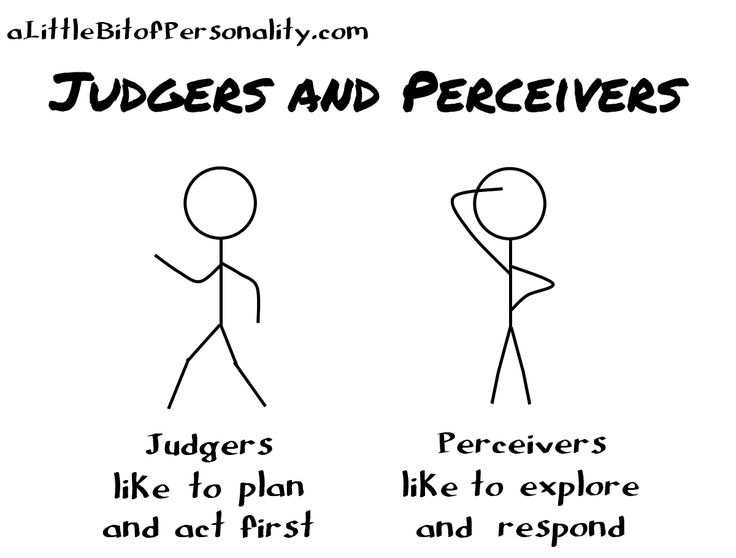 This type of people is prone to impulsive actions without much thought.
This type of people is prone to impulsive actions without much thought.
Picnic is overweight, good-natured, open-minded, prone to seeking comfort and enjoying food. nine0009
Very common and often used today is the classification according to the leading type of perception in humans.
Visual psychotype . It is important for such people to see. Best of all, they assimilate information when reading, and also always evaluate externally, since images, colors, visualization, and gestures play an important role for them.
Auditory psychotype. Such people pay attention to the interlocutor's speech, voice timbre, tone. The information that they perceive by ear is more understandable for them and is better remembered. nine0009
Kinesthetic psychotype . People of this psychotype are used to feeling. Tactile contacts are important to them, they perceive information through smell, touch and with the help of movements.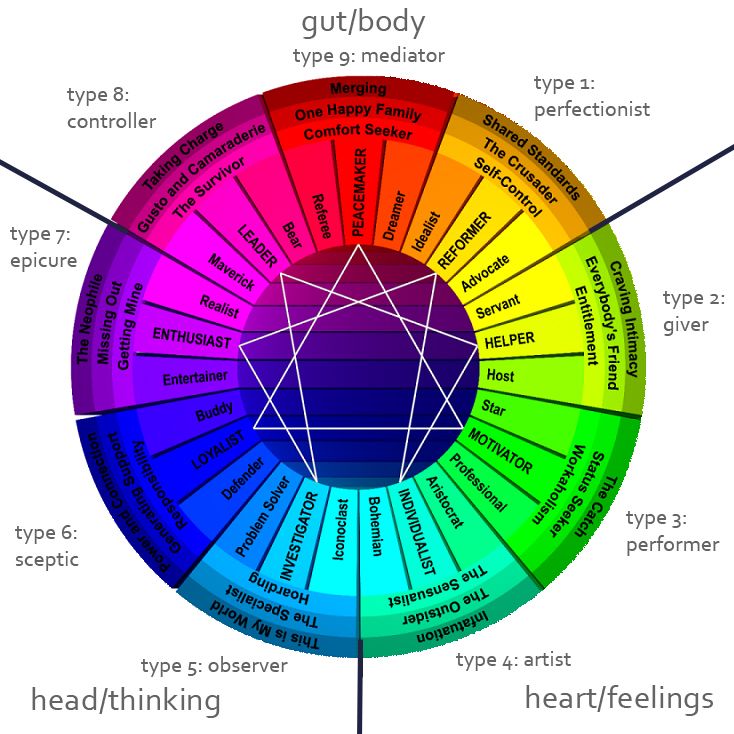
Discrete - a person whose perception of information occurs through logical comprehension with the help of numbers, signs, arguments. This psychotype develops as a person grows up, since it is based on well-formed logical thinking.
Popular
These are just a few of the most well-known classifications that make it possible to rather conditionally group people into groups according to related characteristics.
A more interesting and profound classification, on the basis of which psychoanalysts and psychoanalytic psychotherapists work, is the classification proposed by Nancy McWilliams in the book "Psychoanalytic Diagnosis". It describes ten basic personality types.
Schizoid personality type
How to recognize? Most often this type of personality occurs in men. They appear self-absorbed and often avoid contact, preferring computer games instead. Outwardly, they look like loners with “frozen” feelings and strangers in the company detached from the whole world.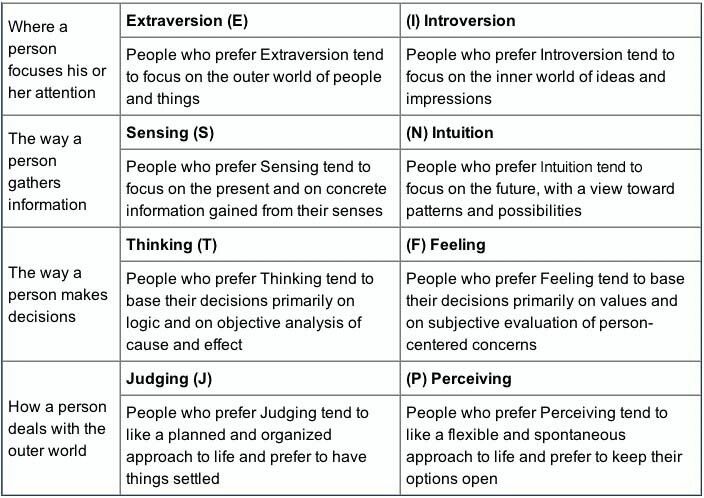 However, this erroneous impression disappears if you get to know them better. These are very subtly and sharply feeling people, capable of love and care, but they cannot stand the noise and pressure on them. nine0009
However, this erroneous impression disappears if you get to know them better. These are very subtly and sharply feeling people, capable of love and care, but they cannot stand the noise and pressure on them. nine0009
Popular
How to interact? They live at their own pace and are grateful if their partners understand them and don't put too much pressure on them. Meetings and joint affairs with them must be agreed in advance, since spontaneous actions frighten them rather than attract them. In any IT company, you can always find many employees with this type of personality.
Antisocial personality type
How to recognize? Most often these are people whose childhood was spent in difficult conditions. Not receiving enough love and care, they perceive the world as a threat and react with aggression, even when no one attacks them. People with an antisocial personality type are not capable of empathy and cannot understand the feelings of others, so they rarely establish strong relationships and often change partners without trusting anyone. When they meet, they give the impression of bright, courageous people and attract with their extraordinary and sometimes risky actions. nine0009
When they meet, they give the impression of bright, courageous people and attract with their extraordinary and sometimes risky actions. nine0009
How to interact? They generously make promises that will never come true, involve them in failed projects for their own benefit, and never feel remorse for hurting loved ones. Oddly enough, antisocial individuals, going over their heads, are successful in business - their unscrupulousness helps them in this. What you never hear from people of this type are words of tenderness. Any manifestation of feelings they perceive as weakness.
Popular
Depressive personality type
How to recognize? These are people whose attitude is based on low self-esteem and the feeling that they will always be not good enough. In childhood, they were rejected by their parents: for example, they were left to live with their grandmother. This experience in adulthood is transformed into their unconscious belief that they are worthy of rejection. The whole life of people with a depressive personality type is aimed at earning the love and recognition of others. nine0009
The whole life of people with a depressive personality type is aimed at earning the love and recognition of others. nine0009
How to interact? These are very kind, gentle people, often sacrificing themselves without any benefit. They try to do as much good as possible in all areas that are available to them. They rarely get angry and express dissatisfaction with others, directing negative feelings towards themselves. People of the depressive type are prone to anhedonia and respond with great gratitude to any manifestations of attention and love for them.
Manic personality type
How to recognize? nine0118 A person with a manic personality type is always cheerful and cheerful, tends to idealize others, often flirts and attracts attention with noisy behavior, which is sometimes excessive.
Popular
Almost in any company there is a person who speaks loudly, actively gesticulates, gushing with jokes and ideas, thereby greatly tiring others.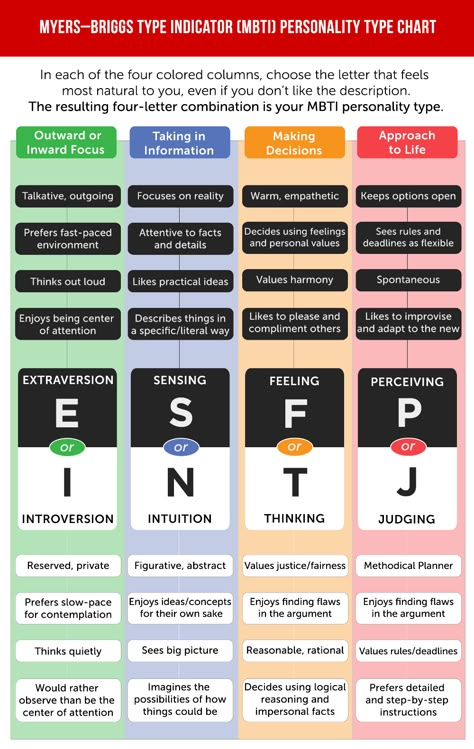 It is quite difficult and tiring to be with such a person for a long time - this is the basis of his problems. nine0009
It is quite difficult and tiring to be with such a person for a long time - this is the basis of his problems. nine0009
How to interact? Manic people cannot stand loneliness, immediately falling into anxiety, but their activity gives the impression of superficial communication and unwillingness to enter into close relationships. People with this type of character can be excellent organizers and crisis managers. They are successful in any business that requires quick turn-on and action.
Narcissistic personality type
How to recognize? This personality type has been often demonized lately, and the words "narcissist" and "abuser" have become almost synonymous. But it is not so. Most often, people of this type grow up in families where love had to be earned, they were constantly compared with other children, emphasizing other people's achievements and devaluing his own. The feeling that he was good and loved arose only if he was praised for grades or other merits. People with a narcissistic personality type are in two polar states: grandiosity and insignificance. They need to constantly achieve the highest results in order to feel good. The slightest failure is perceived as a total failure, which is accompanied by a sense of destructive shame. nine0009
People with a narcissistic personality type are in two polar states: grandiosity and insignificance. They need to constantly achieve the highest results in order to feel good. The slightest failure is perceived as a total failure, which is accompanied by a sense of destructive shame. nine0009
Popular
How to interact? They cannot stand the slightest criticism, they are constantly preoccupied with their appearance and social status, they suffer from perfectionism, which does not make them feel the joy of achievements. This psychotype is equally found among both men and women. At the beginning of a relationship, a bright and unforgettable period of passion and adventure awaits them, which is always replaced by disappointment and the problem of getting out of this relationship, as the partners are held by memories and the hope of returning all the good things. nine0009
Paranoid personality type
How to recognize? About the paranoid personality type, one could say that these are people with a “bad character”.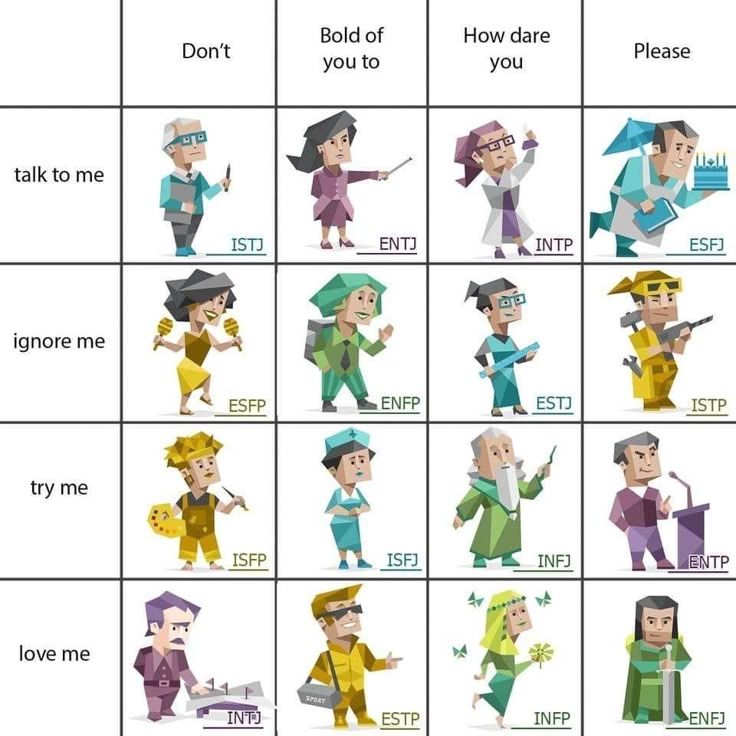 Suspicion, incredulity, lack of a sense of humor, criticality are their characteristic features, which often lead to a lack of friends and family relationships.
Suspicion, incredulity, lack of a sense of humor, criticality are their characteristic features, which often lead to a lack of friends and family relationships.
How to interact? Often they are consumed by pathological jealousy - they can constantly check their partner, because they are afraid of betrayal and see him everywhere. The feeling of constant tension and the inability to relax, the need to be in constant struggle, greatly complicate their life. At the same time, these are people with a high level of intelligence: they can reach high positions in areas where their character traits are applicable. nine0009
Masochistic personality type
How to recognize? Often these are people who are defiantly in the position of a victim, forcing others to show sympathy and support for them. There are three main topics that these people complain about: Even if they seek the help of a specialist, they still do not follow the recommendations.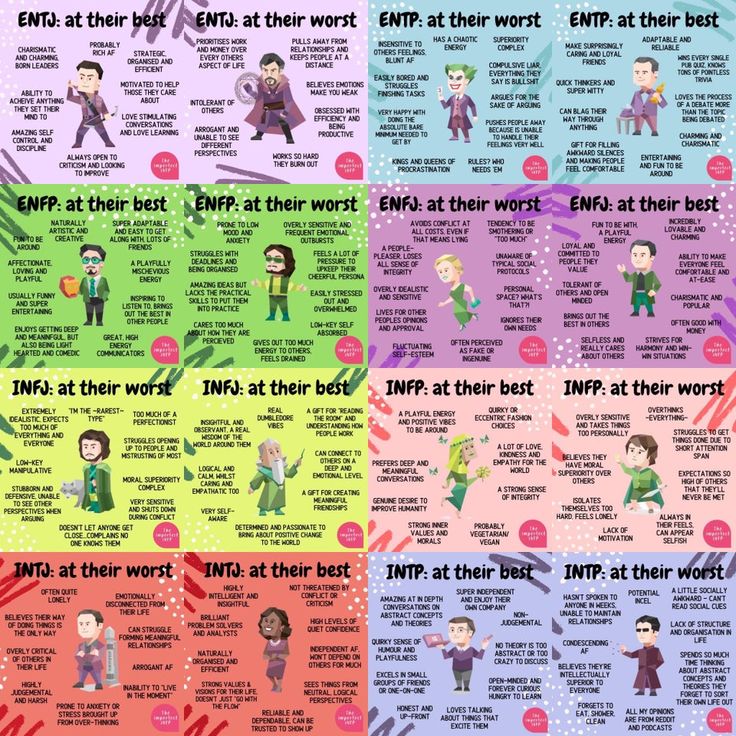 nine0124
nine0124
How to interact? Most often, women belong to this type of personality. Before we allow ourselves to be drawn into a discussion of their suffering, we need to consider whether we are becoming an object of manipulation. nine0009
Obsessive-compulsive personality type
How to recognize? The obsessive personality type tends to get stuck on thinking about ideas and intentions, for them the transition to action is problematic.
Popular
Any purchase, not to mention changing jobs or choosing an apartment, causes a lot of problems and doubts.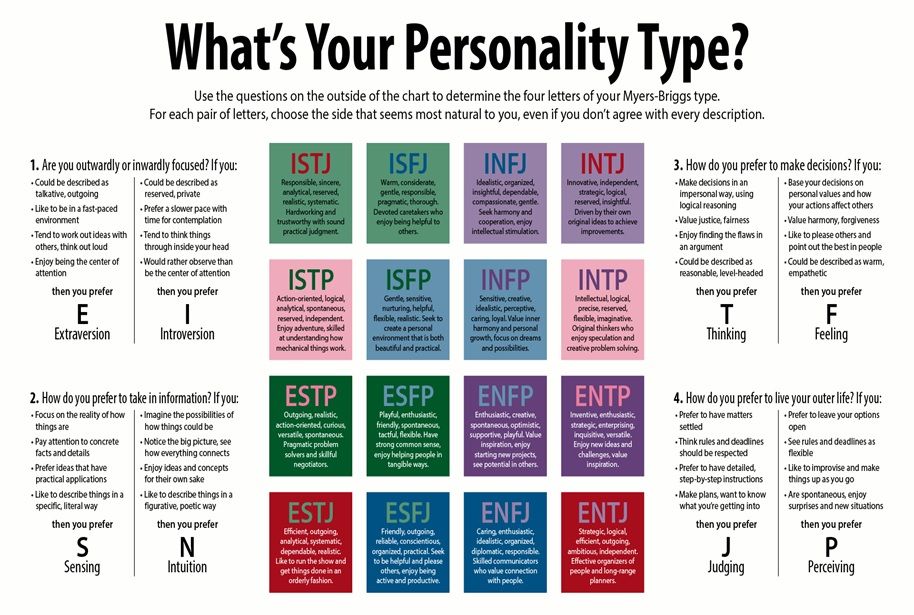 They can plan trips for years, but not take concrete steps, as they are not sure of the correctness of their choice. nine0009
They can plan trips for years, but not take concrete steps, as they are not sure of the correctness of their choice. nine0009
In contrast, people of the compulsive type are prone to rash impulsive actions and decisions that they later regret.
How to interact? Parents of people with this personality type are overly strict and demand absolute obedience from their children. As a result, they either accept these settings, constantly doubting the correctness of the choice, or they rebel, trying to do everything quickly, until the conditional "parent" stops them. People of this type are kind, take responsibility, are attuned to family life and love to equip life. nine0009
Hysterical personality type (theatrical personality)
How to recognize? Bright, demonstrative, in need of attention and demanding love. Most often, it is women who are representatives of the hysterical type of personality.
They tend to get into stories associated with love dramas, they can drag them out for years, falling into dependence on these experiences.